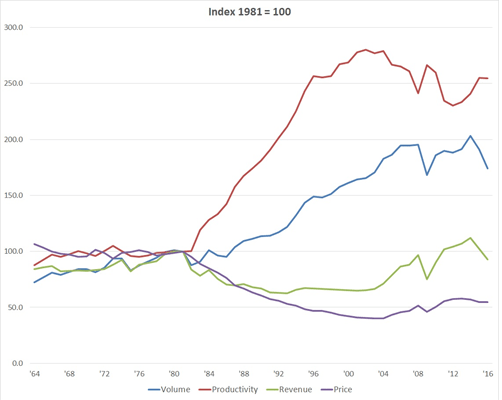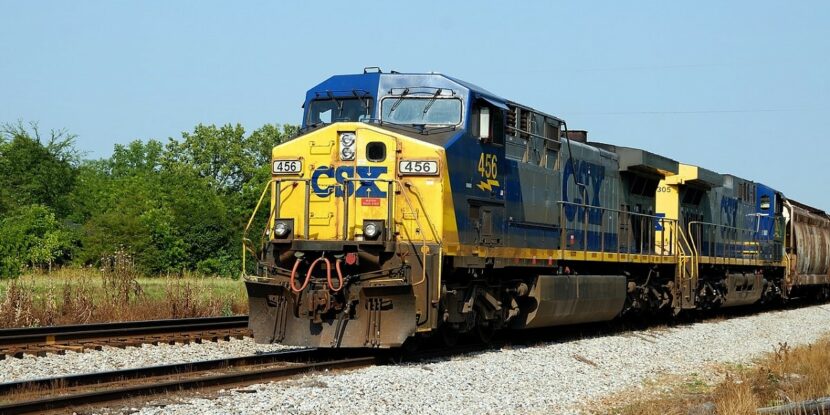Recently, two new commissioners were sworn in to the Surface Transportation Board (STB) tasked with regulating America’s railroads. While the filling of these vacancies may not have received much attention, the decisions rendered by this commission could play a major role in strengthening — or de-railing — President Trump’s successful efforts to roll back regulations. One proposal that sits before the board, widely referred to as the “Forced Switching Rule,” would undo decades of economic progress by re-regulating American railroads.
In the 2019 Economic Report of the President, the administration explains how its light-touch approach to regulations has saved over $30 billion in just the past 2 years. But despite the administration’s significant cuts to government red tape, a major new regulatory action currently looms overhead at the STB. The board’s proposed forced switching rule would lead to widespread shipping delays and railroad congestion by requiring operators to turn their freight cars over to competitors at potentially below-market prices. As the Mercatus Center previously noted: “think of [forced switching regulations] as sending a package via UPS and then requiring that they hand the package off to FedEx at the city limits.” If enacted, this proposal would significantly undermine the efficiency of America’s rail network.
The forced switching rule is especially puzzling due to the seemingly universal recognition that de-regulating the railroad industry in the 1980s was a huge boon to our economy. As the chart notes, American railroads became tremendously more productive after the passage of the Staggers Rail Act, which gave carriers the freedom to set market rates and negotiate their own contracts and agreements with other operators. American Action Forum wrote that decades after the passage of this legislation, prices in 2016 were “45 percent lower than in 1981, the first full year of operation under the partial deregulatory structure.” Committee to Unleash Prosperity co-founder Steve Forbes perhaps summed it up best when he said that deregulating the railroads in the 1980s was an “economic miracle” we need to learn from.

The STB’s forced switching proposal would set us back decades by re-instituting regulations similar to those that stifled rail shipping in the first place by allowing government bureaucrats to act as railroad switchmen. For rail shipping to continue to thrive, operators must continue to have the freedom to negotiate their own contracts and set their own prices without government interference.
Legendary investor Warren Buffet once said that if he were stuck on a desert island and only given one number to know how the economy was doing, he would pick railcar traffic. America’s rail shipping industry drives over $200 billion to the U.S. economy and plays a huge role in the delivery of everything from petroleum to coal to paper to metals. Let’s hope the new commissioners on the STB will get on the right track by continuing President Trump’s light-touch approach to regulations and rescinding the forced switching proposal.


